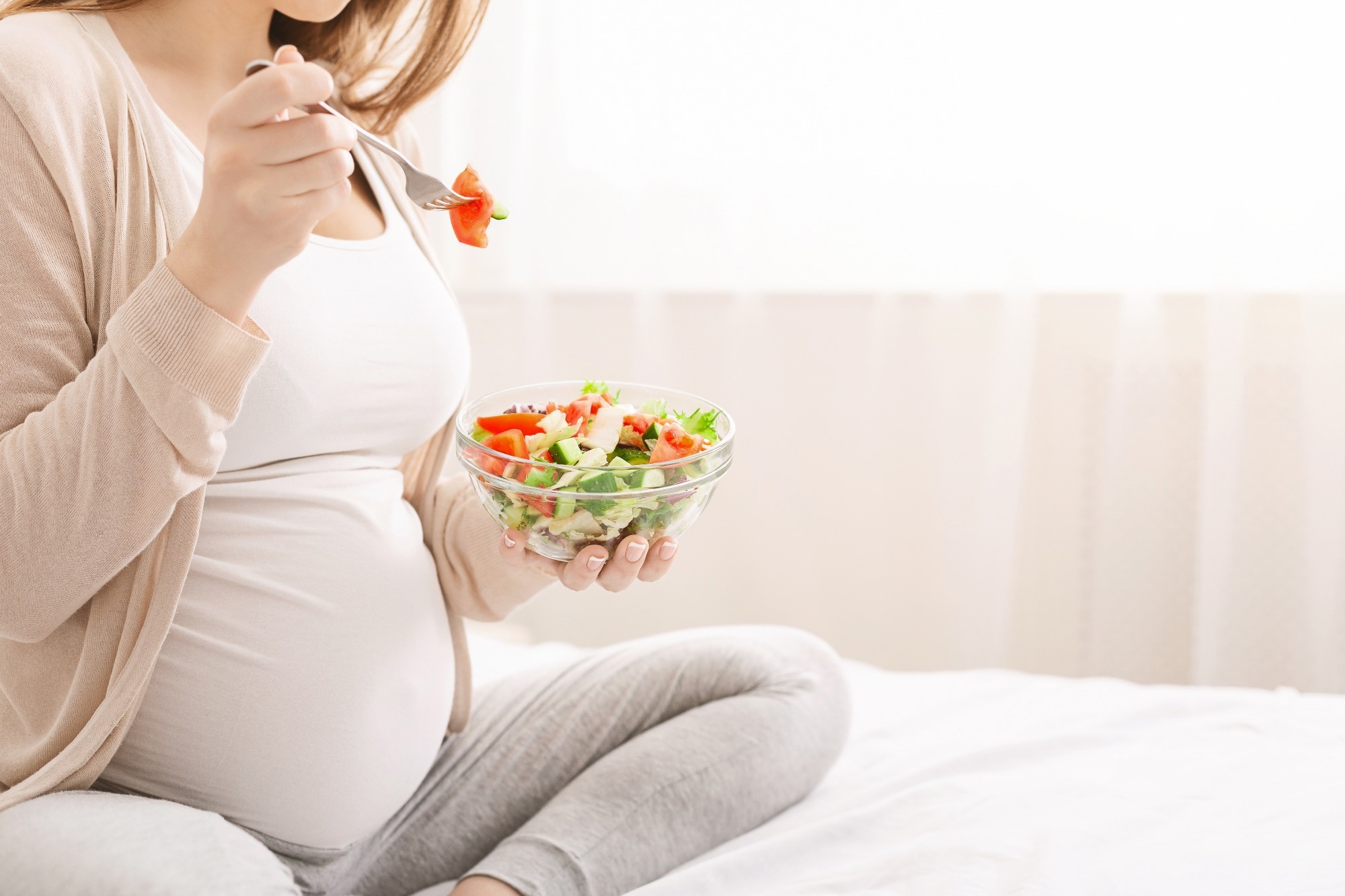In a recent study published in the Nutrients Journal, researchers performed a meta-analysis to evaluate the effects of dietary trends on reproductive outcomes among women who conceive naturally and those who need assisted reproductive technology (ART).
Study: Can Dietary Patterns Impact Fertility Outcomes? A Systematic Review and Meta-Analysis. Image Credit: Prostock-studio/Shutterstock.com
Background
Infertility refers to conceiving inability after a year of regular and unprotected sex. The increase in ART usage, including intracytoplasmic sperm injections (ICSI) and in vitro fertilization (IVF), has improved the rates of live births in developed countries; however, ART accessibility may not be equitable in developing nations.
Moreover, ART use is associated with significant emotional and financial strain. Thus, research is required to identify modifiable risk factors for infertility and develop strategies to improve reproductive outcomes.
Excess weight, smoking, alcohol intake, and physical inactivity are known risk factors; however, the effects of diet on fertility have not been extensively investigated, and existing data on the association between diet and reproductive health are contradictory.
About the study
In the present meta-analysis, researchers investigated whether diet patterns could affect fertility outcomes and evaluated surrogate fertility markers to elucidate underlying mechanisms.
Databases such as EMBASE, Ovid MEDLINE, CINAHL Plus, and CAB direct were searched on September 21, 2021, without any language limitations for studies investigating dietary patterns or whole diets of reproductive-aged women needing ART or conceived spontaneously.
The study outcomes were live births (childbirth at ≥24.0 gestational weeks), rates of clinical pregnancy (intrauterine pregnancy verified by ultrasound imaging at ≥6.0 weeks), biochemical pregnancy [urine positive for beta-human chorionic gonadotropin (β-hCG)], and infertility.
Surrogate markers of pregnancy included embryo quality, endometrial thickness, oocyte yield, fertilization rate, and biochemical molecules. The team grouped different dietary patterns into three categories, Healthy, Unhealthy, and Mediterranean.
Random effects modeling was performed, and the odds ratios (ORs) were calculated using inverse-variance meta-analysis. The included studies assessed reproductive-age women attempting pregnancy through spontaneous delivery or ART.
The team excluded studies involving ART use other than ICSI or IVF, such as surrogacy, including women beyond child-bearing age (49.0 years), studies conducted on animals, studies including underweight individuals or those with genetic diseases such as Turner syndrome, Fragile X, and thalassemia. In addition, studies assessing individual nutrients or dietary weight loss, randomized controlled trials (RCTs), case reports, and narrative literature reviews were excluded.
Whole diets were determined by performing a priori (from predetermined diet patterns) or posterior (diet patterns obtained from data assessments) diet pattern analysis.
The quality of evidence was assessed using the Risk of Bias in the Non-Randomized Studies of Interventions (ROBINS-I) tool. The team performed a sensitivity analysis by eliminating studies with high bias risks.
Results
Initially, 16,488 records were identified, 1,092 duplicates were removed, 1,536 records were screened, and 113 records were assessed for eligibility, of which only 11 were considered for the final analysis.
Among the included studies, eight had moderate bias risks, and three had high bias risks. The pooled crude odds ratio for the relationship between the Mediterranean diet and ART outcomes (live births and pregnancy) was 1.3.
By dietary measurements or outcomes, the subgroup analysis showed non-significant differences in the pooled impact, maintaining moderate-level heterogeneity. In the sensitivity analysis for the Mediterranean diet, excluding three studies with high bias risks, greater compliance was related to improved pregnancy rates and more live births using ART (OR 1.9).
Likewise, Healthy diets were linked to better ART outcomes (Dutch Dietary Guidelines and ProFertility diet) and spontaneous conception outcomes (Fertility diet).
The Dutch Dietary Guidelines, advising increased intake of vegetables, fruit, fish, meat, whole grains, and healthy fat, showed a 65.0% increase in the adjusted odds of clinical pregnancy with each unit increase in compliance (OR 1.7).
The ProFertility diet, high in low-pesticide vegetables and fruits, soy, fish, and dietary supplements, showed significant improvements in outcomes such as live births, clinical pregnancy, and biochemical pregnancy, with RR values of 1.7, 1.5, and 1.5, respectively.
The Fertility diet, high in vegetables, unsaturated fats, high-fat dairy products, and dietary supplements, showed a 66.0% lower risk of ovulatory infertility [relative risk (RR) 0.3] and a 27.0% lower risk of infertility due to other reasons (RR 0.7). Calculating RRs instead of ORs or adjusted ORs rather than crude ORs yielded similar results.
Surrogate fertility markers did not show significant associations with any prime study outcome, and diets linked to improved rates of live births and pregnancy had non-significant relationships with the fertility markers investigated.
Conclusion
Overall, the study findings provided initial evidence of the impact of dietary patterns and whole diets on the rates of live births and pregnancy.
However, due to data heterogeneity, the specific dietary patterns that can improve ART and reproductive health outcomes remain unclear.
